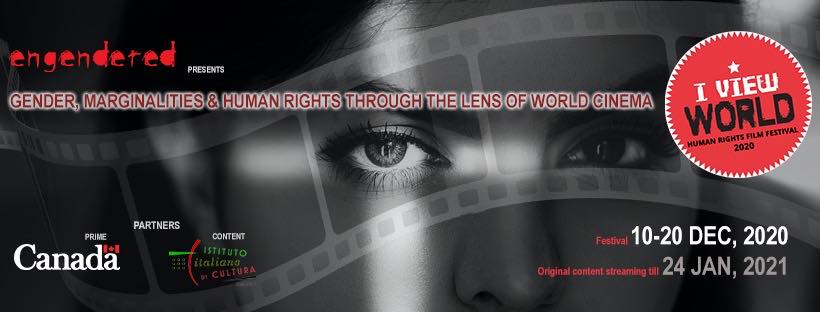
IVWFF 2020 Documentary Short Film Review “Who Can Speak of Men?”
NO TRAILER CURRENTLY AVAILABLE
First, the Recap:
The policy of disassociation, separation, a sense that no matter what choices you might be confident in making, there will be those who might do their best to refute the validity of them, refusing to accept that which isn’t “the norm”. In the face of such blatant judgement and non-understanding, it might therefore seem impossible to maintain one’s striving to be who they are. However, in the New Delhi, India neighborhood of Zakir Nagar, there resides three distinct young women–Chini, Kafeela, and Arshi. Daily, they make the decision to stand firm in their cross-dressing existence and show that against what so many would call daunting odds, they can remain rooted in the place they’ve always called home while likewise enduring the critics and bringing the notion of equality and pride for the LGTBQ community, and all human beings, to the forefront.
Next, my Mind:
The weight of scrutiny, intolerance, and closed off thinking towards anything deemed different or new are just some of the thematic explorations on display through this documentary short film effort, and second project from director Ambarien Alqadar, that was screened as part of the 2020 I View World Film Festival sponsored by the embassies of India, Canada, Sweden, Netherlands, Italy, Argentina, British Council, and The EU, curated by Engendered Delhi, and in partnership with NYCSAFF. It quickly becomes another necessary reminder of not only how diverse this world is, but the ongoing struggles for many associated with the LGBTQ community to feel like they’ve truly found their place in it, or that they otherwise must confront constant obstacles even if they have.
This time, the focus is found within three young ladies who call one of the most sizable and segregated Muslim neighborhoods in New Delhi their home, where to even be a woman offers its own societal and rigidly traditional challenges, much less when you also then engage in cross-dressing as a boy/man and make it abundantly clear this is precisely how you see yourself, are boldly confident in it, fervently pursue it, and stand out hugely because of it. Yet, it is this abundant defiance of “convention” that so beautifully defines who they are, and regardless of what your personal opinions may be about it, there’s an undeniable respect and even inspiration found in listening to each of these women so strongly hold fast to their choice, which even in a grander scale is a lesson we could all learn from more times than we might wish to admit.
As we are entreated to the stories and particular instances Chini, Kafeela, and Arshi expound on, it honestly becomes disheartening at times to have to understand just how often they’ve had to, in some form or another, fight and resist all the “expected” cultural practices or “rules”, in addition the question so many of them despise hearing via “Is that a man or woman??”, just because they’re wanting to act and look like boys/men rather than girls. I feel when we are striving to look at what it is to be human beings, it should already be on equal ground as a whole, and seeing how this kind of sometimes intense level of stigma is placed upon a particular group, once more regardless of what you might think, it just tears the fabric away of what should at minimum be that common ground this is to BE human.
The one weak spot this critic found in the film wasn’t anything to do with content or topic, but rather the literal print of the film was such that many of the subtitles I needed to ensure full understanding of what was being conveyed were somehow drastically blurred or barely visible, and it sometimes caused more distraction than engagement for me. But, despite this, I felt the purposeful message Alqadar desired still came through with full potency. Some of the footage seemed a little more grainy than may have been desired as well, but as stated, the spirit and essence of the film was intact. I also enjoyed the mix of both humor and even dramatic flare that the women displayed as they shared their stories, and that was an aspect of the documentary that really added that evident, grounded, HUMAN element to it all.
So, in total, “Who Can Speak of Men?” was certainly in its element as part of IVWFF 2020, and I hope it was able to capture the attention of viewers worldwide with its real world truths, evocative concepts, and delightfully candid interviewees, all of whom showcase the realization that equality for all should transcend gender and orientation so that we might find more constructive means to handle even that with which we might disagree.
As always, this is all for your consideration and comment. Until next time, thank you for reading!



